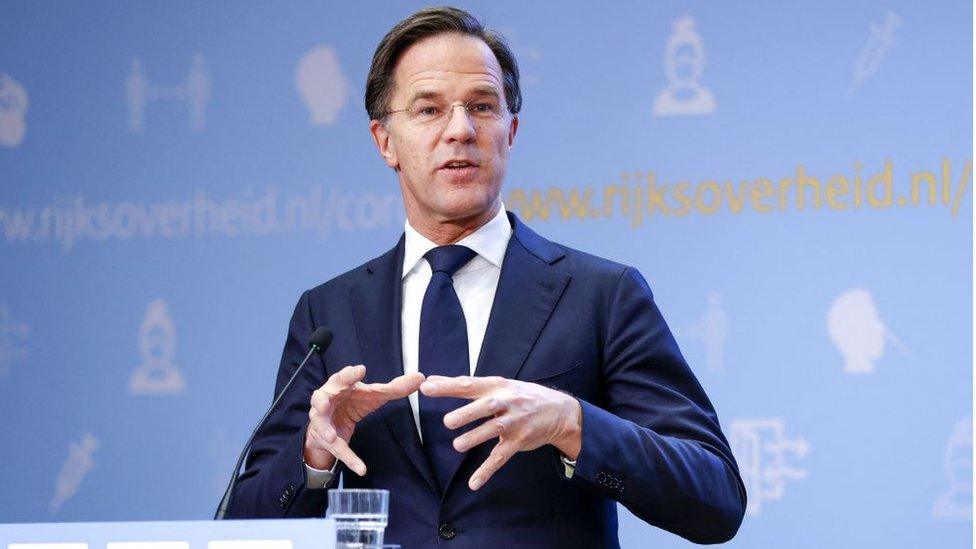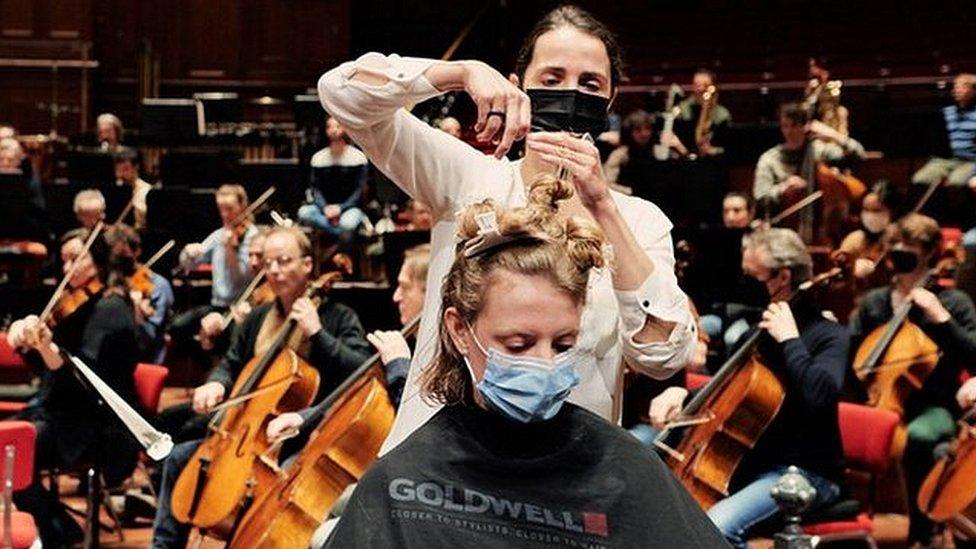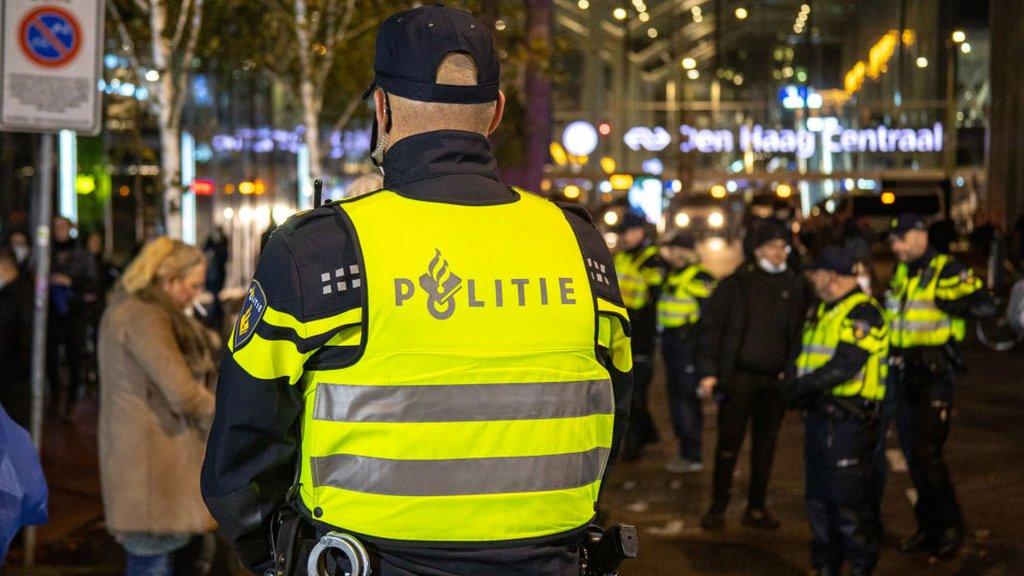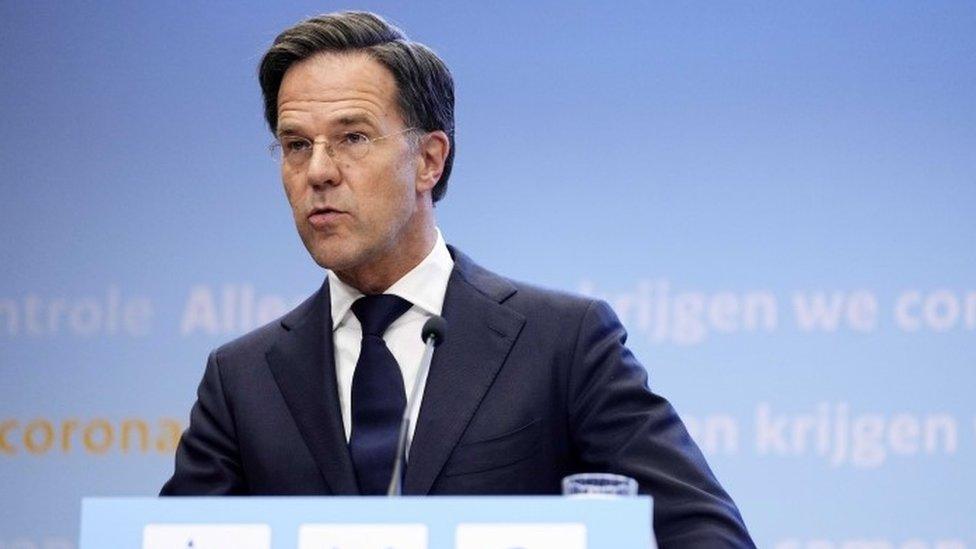Covid: Netherlands to ease restrictions despite rising case numbers
- Published

Prime Minster Mark Rutte warned that the country was taking a risk in relaxing restrictions amid rising case numbers
The Dutch government has said it will ease its Covid-19 restrictions, among Europe's toughest, from Wednesday.
Dutch hospitality settings, including bars, restaurants and museums, have been shut since 18 December in a bid to curb the spread of the Omicron variant.
But despite the restrictions, Covid-19 cases have continued to increase, with some 60,000 now recorded per day.
Prime Minister Mark Rutte told a news conference that the country was "taking a risk" in easing the restrictions.
Mr Rutte, who has faced growing calls for a relaxation of restrictions in recent weeks amid falling deaths and admissions to intensive care, added that the new rules will be effective until 8 March.
Cafes, bars and restaurants will be allowed to open until 10pm, though to gain entry patrons will be required to show a negative test result, prove they are vaccinated or have recently recovered from a coronavirus infection.
Nightclubs will remain closed, and capacity at sporting and cultural events will be limited to 1,250 people.
The reopening follows a wave of anger from many hospitality sector employees, who were left disappointed by the government's decision to allow shops, gyms, hairdressers and sex workers to resume business on 15 January while their sector was kept in lockdown.
Cafes in several cities opened in defiance of the restrictions the weekend before last, and dozens of museums and theatres opened as beauty salons for a day in protest.
Public support for the strict measures has also waned steadily over the past month and large demonstrations against the rules have become more frequent in the capital, Amsterdam.
Mr Rutte alluded to this anger during his news conference, telling reporters that the government was "consciously looking for the limits of what is possible, because of the great tensions and cries for help in recent days".
Meanwhile, Health Minister Ernst Kuipers warned that the virus is "not the flu", but said that relaxing the curbs was important.
"Living for longer with restrictive measures harms our health and our society," he said.
Despite the the harsh restrictions, new coronavirus cases have continued to rise. On Tuesday, the National Institute for Health (RIVM) reported a record 366,120 cases for the previous week, a rise of 51%.
Nearly 90% of people in the Netherlands have now been vaccinated.
But the country has lagged behind its western European neighbours in the rollout of its booster vaccine programme, with just 57% of people coming forward for their shot.
You might also be interested in:
Watch: Fireworks and chaos on the streets as Dutch Covid riots break out in November
- Published19 January 2022

- Published19 December 2021

- Published12 July 2021
